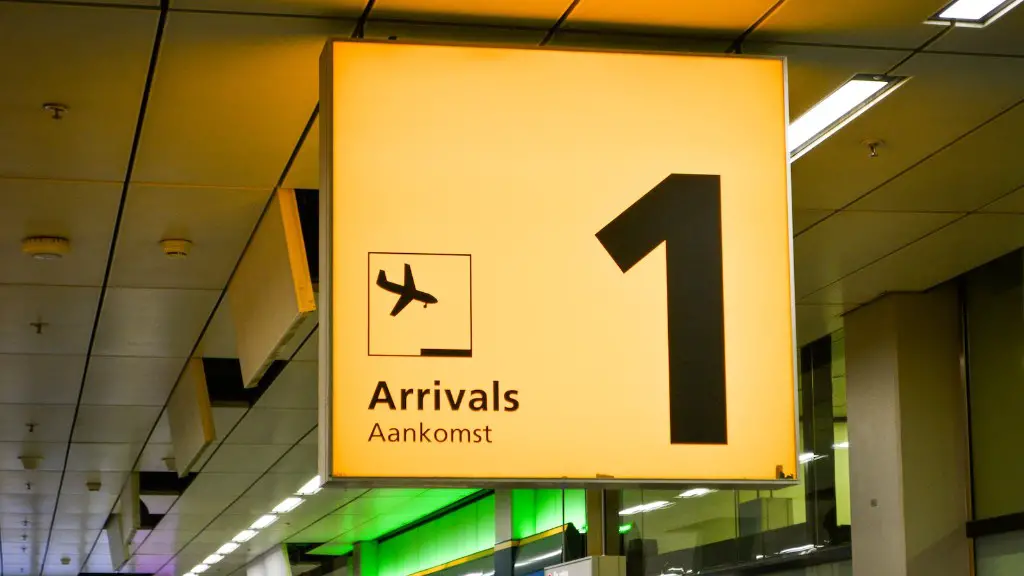Whether you’re jetting off for business or pleasure, travel insurance is a wise investment. But what does travel insurance actually cover? Most policies will cover you for things like lost or stolen luggage, medical emergencies, and trip cancellation. But what about missed flights?
Generally, travel insurance does not cover missed flights. There are a few policies that may offer some coverage for missed flights, but it is typically very limited.
What insurance covers missed flight?
Missed connection insurance reimburses you for costs incurred because you miss a flight, cruise or other transportation connection due to an unexpected event covered by the policy. It is typically sold as part of a travel insurance plan or it can be purchased as an add-on coverage.
If you miss your flight, you will generally not be able to receive a refund. Depending on the circumstances, you may be able to receive partial credit or free rebooking. The only way you are likely to get a full refund is if the airline cancels your flight.
Does travel insurance cover missed departure
Most insurance providers will not cover you for delays and missed connections caused by the airline. If you miss your flight and it’s not the airline’s fault, then the airline has no obligation to compensate you. Some insurance providers will cover missed connections if the airline is not obliged to pay compensation.
If you fail to show up for a flight that you have booked, most airlines will class you as a “no-show” and keep your money. It is important to note that your return flight will also be automatically canceled if you are a no-show on your outbound flight. If you contact the airline carrier before your flight is scheduled to depart, you may be able to get a partial ticket credit depending on the type of ticket that you have.
Do I have to pay if I miss my flight?
If you need to change your flight, be aware that you may be charged a rebooking fee by the airline. In some cases, the airline may also charge the difference in airfare if the new flight is more expensive than the one you missed. This can be a costly inconvenience, so it’s best to plan your travel carefully and avoid missing your flight if possible.
If you miss a connecting flight due to a flight delay, you should get the airline to provide you with confirmation of the cause of the delay. Collect relevant documentation, such as receipts and vouchers, and claim your basic benefits and services at the airport. You can determine the amount of your claim using our calculator.
What is usually covered by travel insurance?
A comprehensive travel insurance policy covers a wide range of potential risks and expenses that could be incurred while travelling, such as delays, cancellations, lost luggage, and emergency medical costs. This type of policy can give you peace of mind while travelling, knowing that you are covered for a wide range of potential problems.
If you book a flight and it is delayed for more than three hours, you may be eligible for compensation from the airline. This is usually the case if the delay was due to the airline’s fault.
Which circumstances Events incidents are not covered in travel insurance
However, some events are more foreseeable than others. For example, if you are going to a country with a high crime rate, it is reasonably foreseeable that you could be the victim of a crime. As such, losses that arise from such an event would not be covered by travel insurance.
While flight insurance may seem like a good idea, it’s important to know that it doesn’t cover all of your expenses. It’s important to read the policy carefully to understand what is and isn’t covered.
Does travel insurance cover 100%?
Although travel insurance policy differ in the percentage of reimbursement, most standard policies only cover 50% to 75% of the total cost of the trip. Furthermore, most policies require that the traveler cancels the trip at least two days in advance in order to be eligible for a reimbursement.
However, you may want to consider purchasing travel insurance for medical and evacuation coverage in case you experience an accident or illness while on your trip.
What are valid reasons to cancel a flight
Trip cancellation insurance can give you peace of mind if you’re worried about having to cancel your trip for a covered reason. Most policies will cover unforeseen illness, injury, or death of the traveler, a traveling companion, or a non-traveling family member. Other common covered reasons include terrorism, inclement weather, or a natural disaster.
If you have had a legitimate travel insurance claim rejected, you should file an appeal in order to get your claim approved. Often, claims are rejected due to missing documents, clerical errors, misunderstandings, or lost documents. However, if you have all the necessary documentation, you should definitely appeals so that you can get the compensation you deserve.
What qualifies as trip cancellation?
There are a few things that can happen that are beyond your control and will result in the cancellation of your public transportation. These things include: unforeseen natural disasters, a legal obligation (such as jury duty), or something else that is out of your control. If any of these things happen, it is important to stay calm and contact the transportation company to let them know what has happened.
Generally, travel insurance does provide cover for flights that are cancelled as a result of an airline strike. However, if your airline reimburses you or reschedules your flight, your travel insurance will not provide cover.
Warp Up
Most travel insurance policies will cover missed flights due to unforeseen circumstances beyond your control. However, it is important to check the details of your policy to see if there are any exclusions.
If you have travel insurance, then you might be covered if you miss your flight. However, it is important to check the details of your policy to be 100% sure. Some policies might only cover certain types of flights, or they might not cover missing a flight due to weather.





